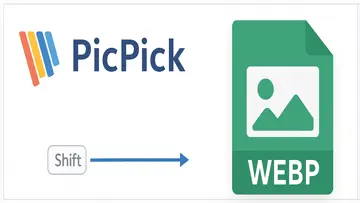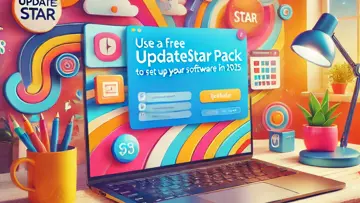Introduction to Windows Installer 2.0
Windows Installer 2.0 is a comprehensive installation and configuration tool designed by Microsoft for the Windows operating system. Its primary aim is to streamline the process of deploying software applications and updates within enterprise environments, while also supporting end users with a reliable installation experience.
Core Features and Functionality
Windows Installer 2.0 extends the capabilities introduced in previous versions, offering enhanced features tailored for modern software deployment needs. Key functionalities include:
- Transactional installation process: Ensures that either all components are installed successfully, or none are, maintaining system integrity.
- Patch management: Facilitates easy updates and patches for software, reducing deployment overhead.
- Self-healing capabilities: Automatically repairs corrupted or missing files during use.
- Custom actions and scripts: Supports complex installation routines tailored to specific requirements.
- Resource management: Efficient handling of files, registry entries, and other system resources during installation.
Installation Management
One of the core strengths of Windows Installer 2.0 lies in its robust approach to managing software installs. The installer package format employs an MSI (Microsoft Installer) file, which encapsulates all installation information, making it easy to deploy and manage. The format supports:
- Standardized installation procedures: Consistent application of installation steps across different applications.
- Uninstallation support: Simplified removal process that cleans up registry entries, files, and other data efficiently.
- Upgrade mechanisms: Seamless upgrade paths by applying patches or replacing old installations.
User Interface and Deployment Options
The installer offers a customizable user interface that can be tailored to match branding or specific informational needs during setup. For deployment scenarios, Windows Installer 2.0 supports:
- Command-line operations: Automation of installations for large-scale deployments.
- Group policies integration: Enterprise-wide control over software installation and updates through Active Directory policies.
- MSI packaging tools: Compatibility with various tools for creating, testing, and deploying MSI packages efficiently.
Compatibility and Performance
The software is designed with compatibility in mind, functioning seamlessly across various Windows platforms from Windows 2000 through Windows XP and beyond. It performs reliably under different hardware configurations, ensuring that software installations are quick and error-free when properly configured.
Security Aspects
Security features are integral to Windows Installer 2.0, including:
- Digital signatures: Verifies the authenticity of installer packages to prevent tampering.
- User permissions management: Controls access to installation rights within enterprise environments.
- Secure patching mechanisms: Ensures that updates are safely applied without exposing systems to vulnerabilities.
Limitations and Considerations
While Windows Installer 2.0 provides a solid foundation for application deployment, it does have some limitations. For instance:
- An older architecture may pose challenges when deploying very large applications or complex updates without additional scripting or management tools.
- The learning curve for creating custom MSI packages can be steep without proper training or experience.
- Compatibility issues may arise with some legacy applications that do not conform to MSI standards.
Conclusion
Windows Installer 2.0 remains a dependable solution for managing application installations on Windows-based systems, especially within enterprise environments where control, security, and consistency are paramount. Its array of features supports efficient deployment workflows and maintains system integrity during complex installations or updates. Proper utilization of its capabilities can lead to streamlined software management processes and reduced administrative overhead for IT teams.
Przegląd
03-177_Windows_Installer_2.0 to Komercyjny oprogramowanie w kategorii Narzędzia Systemowe opracowane przez 03-177_Windows_Installer_2.0.
Użytkownicy naszej aplikacji klienckiej UpdateStar sprawdzali 03-177_Windows_Installer_2.0 dostępność aktualizacji 157 razy w ciągu ostatniego miesiąca.
Najnowsza wersja 03-177_Windows_Installer_2.0 jest 5.0.5, wydany na 09.05.2025. Początkowo był to dodane do naszej bazy na 23.04.2009. Wersja najbardziej rozpowszechnione jest 5.0.5, który jest używany przez 100% z wszystkich instalacji.
03-177_Windows_Installer_2.0 jest uruchamiany w następujących systemach operacyjnych: Windows.
03-177_Windows_Installer_2.0 nie ma zostały ocenione przez naszych użytkowników jeszcze.
Instalacje
Najnowsze recenzje
|
|
KMPlayer
Potężny odtwarzacz multimedialny dla systemów Windows i Mac |
|
|
Realtek High Definition Audio Driver
Niezbędny sterownik audio dla lepszej jakości dźwięku |
|
|
Windows PC Health Check
Zadbaj o płynne działanie komputera dzięki funkcji Windows PC Health Check! |
|
|
Canon MF6500 Series
Wydajne i niezawodne drukowanie dzięki serii Canon MF6500 |
|
|
MyKeyFinder
Bez wysiłku odzyskaj utracone klucze licencyjne oprogramowania za pomocą MyKeyFinder |
|
|
Mobile Broadband HL Service
Pozostań w kontakcie w podróży dzięki usłudze Mobile Broadband HL |
|
|
UpdateStar Premium Edition
Aktualizowanie oprogramowania nigdy nie było łatwiejsze dzięki UpdateStar Premium Edition! |
|
|
Microsoft Visual C++ 2015 Redistributable Package
Zwiększ wydajność swojego systemu dzięki pakietowi redystrybucyjnemu Microsoft Visual C++ 2015! |
|
|
Microsoft Edge
Nowy standard przeglądania stron internetowych |
|
|
Google Chrome
Szybka i wszechstronna przeglądarka internetowa |
|
|
Microsoft Visual C++ 2010 Redistributable
Niezbędny składnik do uruchamiania aplikacji Visual C++ |
|
|
Microsoft Update Health Tools
Microsoft Update Health Tools: Upewnij się, że Twój system jest zawsze aktualny! |





